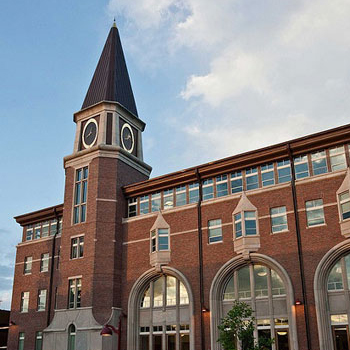Experiential Learning a Top Factor for Law School Applicants
 When law school applications took a downturn around 2011, some law schools redesigned their curricula to add more experiential learning opportunities. Aimed at ensuring that their students were prepared for practice after graduation—and improving their graduates' chances of getting hired—schools hoped the refocused offerings might attract more applicants.
When law school applications took a downturn around 2011, some law schools redesigned their curricula to add more experiential learning opportunities. Aimed at ensuring that their students were prepared for practice after graduation—and improving their graduates' chances of getting hired—schools hoped the refocused offerings might attract more applicants.
In the midst of this shift, David Thomson and Stephen Daniels planned a three-year study of students at the University of Denver Sturm College of Law. The results were published recently in an article titled, "If You Build it, They Will Come: What Students Say About Experiential Learning."
DU offered the incoming class of 2013 the option to spend a full year of law school exclusively in experiential courses, clinics, and externships (30 credit hours). This program, called Experiential Advantage, included surveys of each 1L class and follow-up surveys each year after for the duration of the study.
First-year students were asked to rank factors that affected their choice to attend DU; the school's focus on experiential learning opportunities was the second most important factor, behind location. When students were surveyed again in their third or fourth year, they still indicated value in the experiential learning opportunities offered.
Thomson and Daniels found that applicants will “come to a robust experiential learning program, and they will perceive a benefit from it. Further, as they graduate, they will be glad they came to that law school, and they will appreciate what it did for them in helping them to get a job and be prepared to excel in it."
Heather Buchanan is a second-year law student at the University of Colorado Law School and contributes to IAALS Online. Please direct inquiries about this post to iaals@du.edu.


